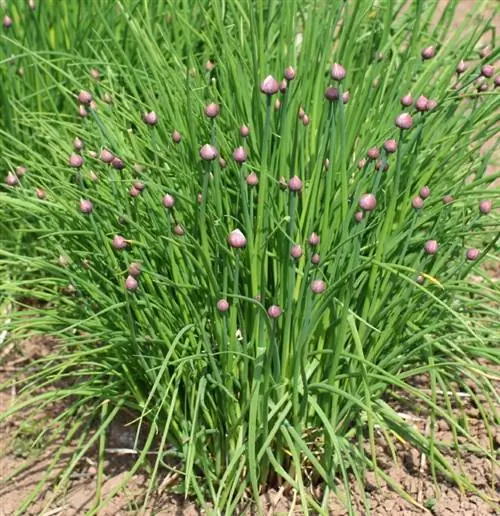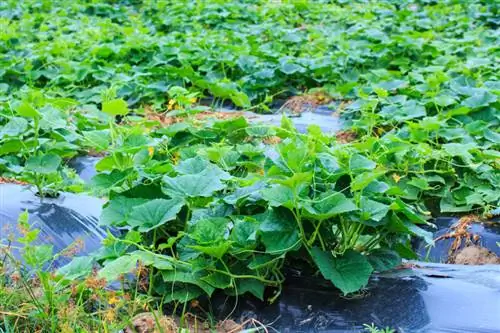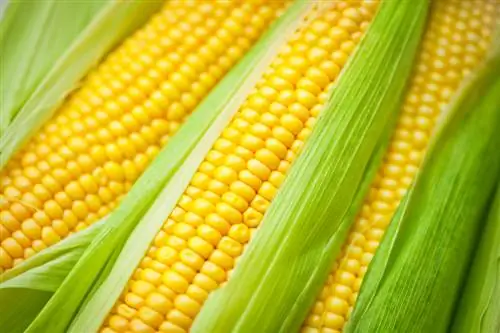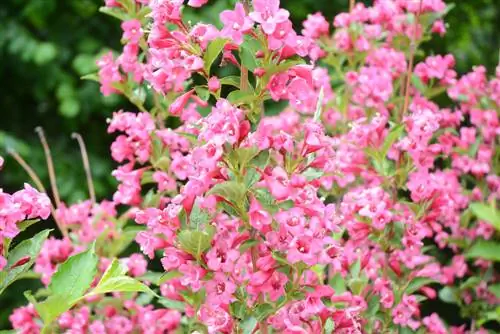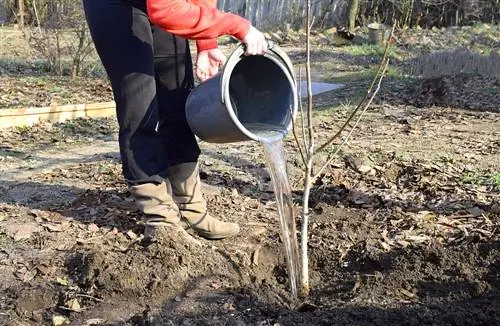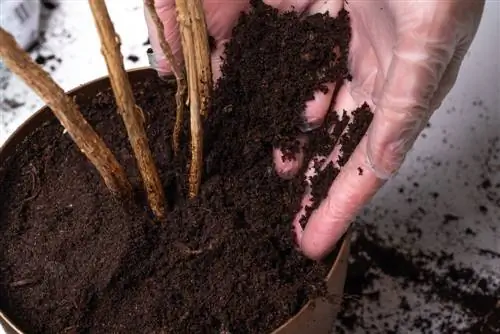- Author admin leonars@hobbygardeners.com.
- Public 2023-12-16 16:46.
- Last modified 2025-01-23 11:20.
Fertilizing herbs properly is an art. Most culinary herbs require few nutrients, which is why regular fertilization is not recommended. Not so with chives: The popular leek plant has a very high nutrient requirement and should therefore not only be grown on humus-rich soil, but also be supplied with additional nutrients.
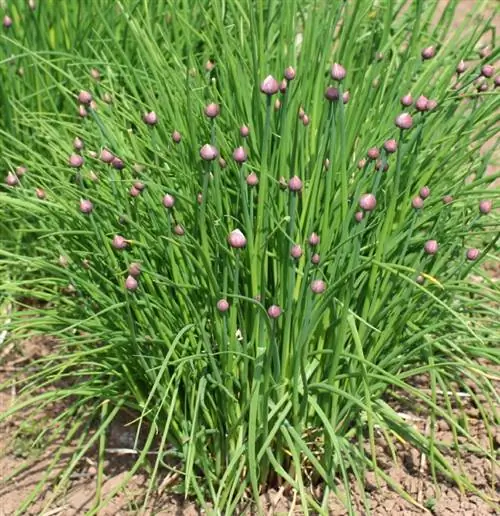
How should you fertilize chives?
Chives require a high level of nutrients and should be supplied with organic fertilizer such as compost, manure or horn shavings. In the pot, chives do not require fertilizer after repotting; liquid vegetable or herb fertilizer can be used in the garden every 3-4 weeks.
Prefer organic fertilizers
Culinary herbs are primarily grown for consumption and should therefore come into contact with as little chemicals as possible. This is especially true for chives, as they are usually eaten raw. However, the high nutrient requirements of this herb can easily be met without expensive synthetic fertilizers from the garden center. Mature compost - this is dark brown, rather crumbly and has a pleasant earthy smell - as well as stable manure (be careful with chicken or pigeon manure, it is particularly high in nitrogen and should therefore only be used in moderation) and horn shavings are ideal for keeping the plant in the soil at the beginning of the growth period to provide it in the spring. During the summer you can use an organic liquid fertilizer for vegetables (€25.00 on Amazon).
Use kitchen waste for fertilization?
You may have heard this tip from your grandmother: certain kitchen waste is ideal for fertilizing herbs. You don't need to throw away eggshells; instead, you can crush them and dissolve them in the water. They are a great fertilizer for lime-hungry plants. Coffee grounds are also good for chives; they are a mild fertilizer that is simply worked into the soil. However, you should use coffee grounds very sparingly because they make the soil acidic - but chives need a more alkaline pH value.
Fertilize chives in the garden and in the pot
Basically, herbs planted in the garden need to be fertilized much less frequently than potted plants - although this also depends heavily on how long the chives have been in the soil in question. Potted chives that are repotted once a year usually do not need any fertilizer - commercially available soil is heavily pre-fertilized, so additional supply is not necessary. However, if the plant is not repotted regularly or has been in the same place in the garden for several years, fertilization is recommended approximately every three to four weeks. For this you can use special herbal fertilizer or liquid vegetable fertilizer.
Tips & Tricks
Instead of liquid fertilizer, you can also use organic long-term fertilizers - so-called fertilizer pellets. These are simply worked into the soil in spring and release nutrients at regular intervals - so you can't forget to fertilize and your plants are taken care of.

